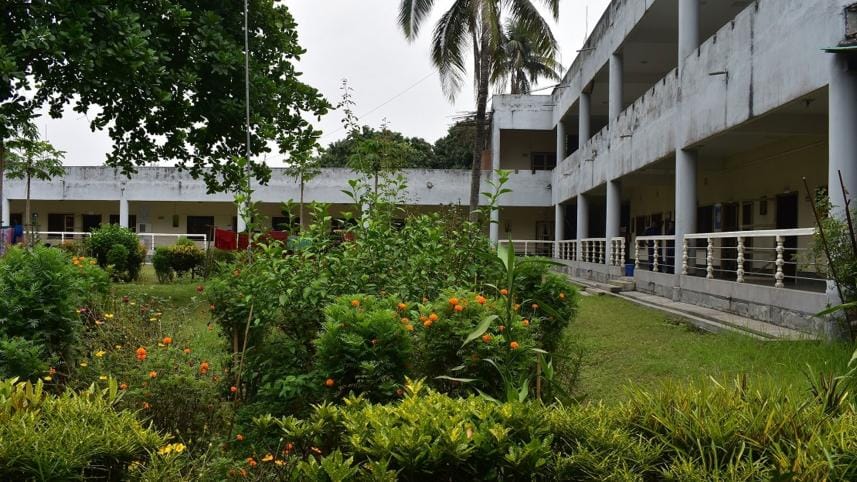Where leprosy patients find hope and care

After being diagnosed with leprosy about 20 years ago, Zohra Begum, now 48, was forced to live on the streets of Jhenaidah town due to social stigma surrounding the disease.
Several years later, she was finally taken to the Danish-Bangladesh Leprosy Mission Hospital in Nilphamari in 2011, where she received treatment for the advanced stage patients.
"Had I not been here, I would have died many years ago," Zohra Begum, mother of two who also lost parts of her hands and legs due to the infection, told The Daily Star sitting on her bed at hospital recently.
The hospital, which was established in 1977 on a 26-acre property in Notkhana village in Nilphamari, is the largest leprosy hospital in the country, has been providing free treatment to advanced stage leprosy patients like Zohra, who are mostly referred from different hospitals across the country, according to officials.
"For such patients, it requires long-term treatment -- sometimes 10-12 years, and the hospital staffers do this with care," said Dr Shamsunnahar Moni, in-charge of the hospital.
The hospital also has outdoor services to serve walk-in patients with suspected leprosy infection, she said.
Run under the National Leprosy programme of the government, the hospital receives a big chunk of the donation from the Leprosy Mission International-Bangladesh (TLMIB).
Visiting the hospital recently, nurse Anita Rani was seen dressing foot wounds of a male patient coming from Khulna.
"We don't hesitate to render service as leprosy is not contagious but curable," Anita said.
Being exiled from the society, the patients also suffer from trauma.
Shaymal Chandra, 45, from Razarhat upazila in Kurigram, for example, was forced to leave his family after he was detected with leprosy on his feet.
"We not only get free treatment here, but also are treated with love and respect like a family member," said Kanchi, a leprosy patient from Kustia.
Dibakar Molla, a counselor at the hospital, said, "We also arrange motivational and physiotherapy session for patients regularly along with treatment."
However, the hospital is yet to get government's registration as a specialised hospital.
Besides, there are shortage of physicians, nurse and other staffers, officials said.
"We have only two medical officers and 12 nurses. Since we have no surgeon, we hire surgeons from outside for surgery. It is tough to ensure smooth operation with inadequate number of physicians and nurses," said Augastine Amal D Rozario, director of the hospital.
Leprosy, also known as Hansen's disease (HD), is a long-term infection by the bacteria Mycobacterium leprae, which may cause the nerve damage resulting in crippling of hands and feet, paralysis, and blindness if left untreated.



 For all latest news, follow The Daily Star's Google News channel.
For all latest news, follow The Daily Star's Google News channel.
Comments